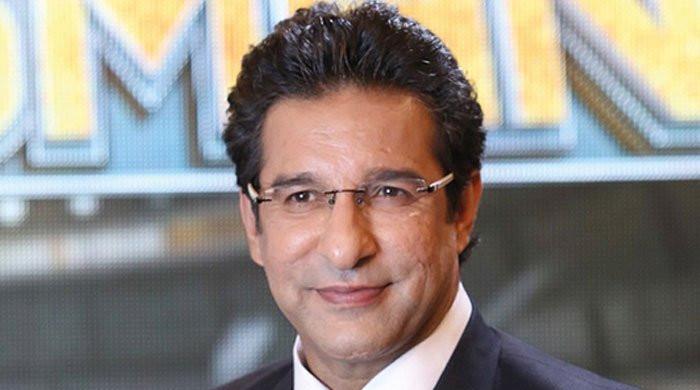Latest News

Akram reveals he was addicted to cocaine post retirement

Previous Pakistan quick bowler Wasim Akram has uncovered in his self-portrayal, Ruler: A Diary, that he was dependent on cocaine in the wake of resigning from the game. Akram likewise composed that he began to accept cocaine as he needed "a substitute for the adrenaline surge of contest" of playing cricket.
The unbelievable cricketer, who took 916 wickets in global cricket, hung up his boots in May 2003 after Pakistan's frustrating show in the 50-over World Cup. Subsequent to resigning from the game, he proceeded to take training tasks, close by doing critique spells.
"I got a kick out of the chance to entertain myself; I jumped at the chance to party. The way of life of distinction in south Asia is all consuming, enchanting and defiling. You can show up for ten gatherings per night, and some do. Also, it negatively affected me. My gadgets transformed into indecencies. To top it all off, I fostered a reliance on cocaine. It began harmlessly enough when I was offered a line at a party in Britain; my utilization became consistently more serious, to the point that I believed I really wanted it to work," according to removes from his self-portrayal, distributed in a meeting by The Times.
Huma, Akram's most memorable spouse, ultimately got to be familiar with his dependence and responded by saying, 'you really want assistance'. The previous Pakistani cricketer likewise explained about how taking cocaine transformed him personally and he began disregarding his diabetes issue. "It made me unpredictable. It made me tricky. Huma, I know, was in many cases desolate in this time . . . she would discuss her craving to move to Karachi, to be closer her folks and kin. I was hesitant. Why? Halfway on the grounds that I enjoyed going to Karachi all alone, imagining it was work when it was tied in with celebrating, frequently for quite a long time at a time.
"Huma in the long run thought that I'm out, finding a bundle of cocaine in my wallet . . . 'You really want assistance.' I concurred. It was going crazy. I had zero control over it. One line would become two, two would become four; four would turn into a gram, a gram would become two. I was unable to rest. I was unable to eat. I became oblivious to my diabetes, which caused me migraines and emotional episodes. Like a great deal of junkies, a piece of me invited disclosure: the mystery had been debilitating."
Akram then went through recovery yet it ended up being a terrible encounter for him, and he began utilizing the substance again during the 2009 ICC Champions Prize. "Films evoke a picture of recovery as a mindful, sustaining climate. This office was fierce: an exposed structure with five cells, a gathering room and a kitchen. The specialist was a finished extortionist, who worked fundamentally on controlling families as opposed to treating patients, on isolating family members from cash instead of clients from drugs.
"Attempt as I would, some portion of me was all the while seething inside about the outrage of what I'd been put through. My pride was harmed, and the draw of my way of life remained. I momentarily considered separate. I agreed to going to the 2009 ICC Champions Prize where, free from Huma's day to day examination, I began utilizing once more," he added.
Akram then, at that point, saw that his enslavement halted after Huma's demise in October 2009 from an uncommon contagious disease mucormycosis. "Huma's last magnanimous, oblivious demonstration was restoring me of my ongoing drug habit. That lifestyle was finished, and I have never thought back."